How Trivia Crack put Argentina on the world’s game industry map
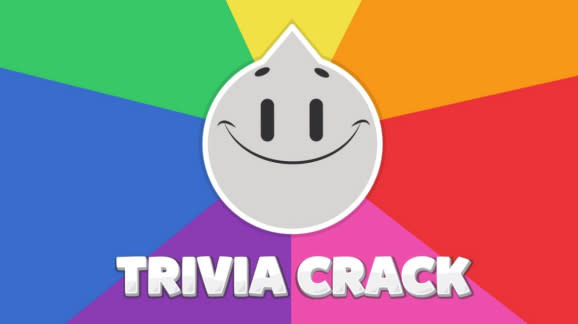
Here’s some trivia about the world’s most popular trivia game. Trivia Crack has more than 300 million users. Those players have answered more than 77 billion questions, and they answer more than 2 million questions per minute. One user has answered more than 622,000 questions.
This mobile game was built in 2013 by a small group of people at Etermax in Buenos Aires, and it has put Argentina on the game industry map. I talked to Maximo Cavazzani, CEO of Etermax about the tremendous reach of the game across the world and how it is still one of the top-ranked games in the trivia category. And the company has been able to keep Trivia Crack in the top ranks without ever having to do paid advertising.
Trivia Crack has been so big for Etermax that the company has 250 employees, including 30 who work full-time on Trivia Crack alone. And it has helped Argentina get a footing in gaming, which is an important industry when it comes to creating the jobs of the future. Earlier this year, SuperData Research estimated there were 350 game companies in Argentina.
Here’s an edited transcript of our interview.
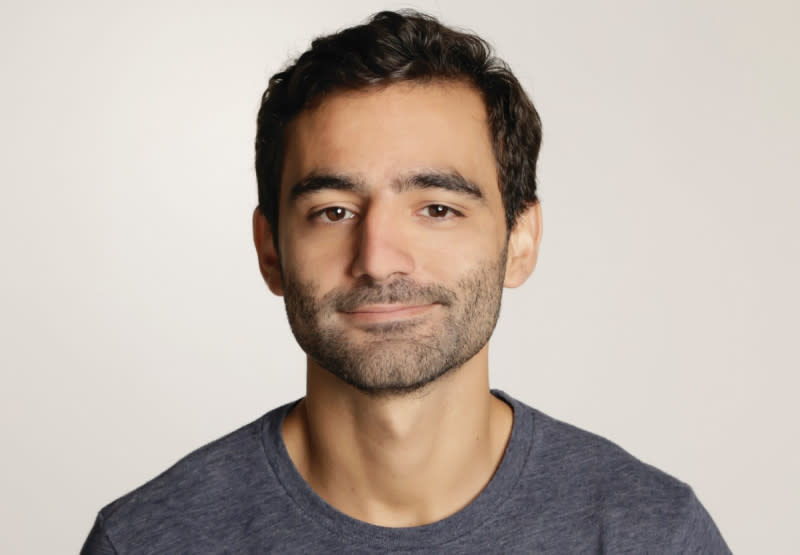
Above: Maximo Cavazzani is CEO and founder of Etermax, maker of Trivia Crack.
Image Credit: Etermax
GamesBeat: How long has Etermax been around?
Maximo Cavazzani: We’re eight years old now. The company started in 2009. We started making games around 2011. Trivia Crack was created in 2013.
GamesBeat: How many people do you have working for you now?
Cavazzani: Right now we’re at 250. Most of them are here in Buenos Aires. We have about 30 people in Uruguay, and now we’re opening a new office in Berlin. That’s still in progress. Until next year there won’t be many people there.
GamesBeat: How much of that is still working on Trivia Crack versus new content?
Cavazzani: Most of those people, around 50 percent, are doing new stuff. Another 40 percent are either working on old games, popular old games, or technologies that run across games – chat, clans, stuff like that.
GamesBeat: Is maintaining Trivia Crack a relatively small effort, or is that still a large team?
Cavazzani: Trivia Crack is still a relatively large team, around 30 people. Some of them are working on the iOS and Android clients and others are working on deeper stuff — the content itself, the architectural development, whether questions could be better, how to choose certain questions for certain users. We put a lot of thinking into that to make the game bigger and better.
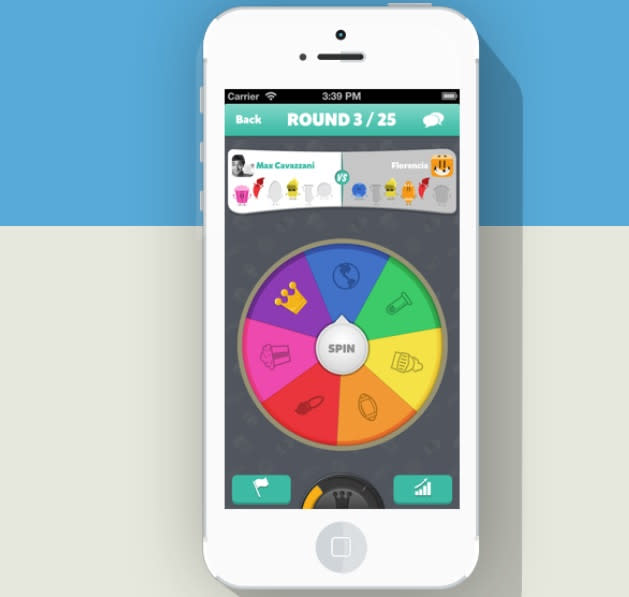
Above: Trivia Crack is No. 1 in 45 countries in the trivia category.
Image Credit: Etermax
GamesBeat: How big has it gotten now as far as downloads?
Cavazzani: We have more than 300 million downloads worldwide, with two million questions answered per minute. We were the most downloaded application in the U.S. in 2015. We’ve been number one in almost every country in the world at some point, aside from China and Japan. We’ve won many awards. The top countries as far as downloads are the U.S., Argentina, Brazil, Mexico, Turkey, Spain, Canada, Italy, Colombia, and Russia. The game became a TV show here in Argentina, and we’re working on a cartoon based on the Trivia Crack characters. It’s a pretty big franchise, pretty well-positioned.
One of the interesting things about Trivia Crack is that we’ve been able to draw all these users without ever paying for user acquisition. It’s all organic, all viral. All the content is made by users as well.
GamesBeat: To this day, do you do any advertising? Has that still not become necessarily?
Cavazzani: With Trivia Crack now we’re starting to think about advertising. We did a small amount of advertising in San Francisco. Now we’re trying that out in Brazil and it’s working very well. We’re trying to get that minimum amount of people so the game can grow from there. We do advertising, but much less than most other games. Our new games will probably be more focused on getting value from advertising, but games like Pictionary and Trivia Crack are very organic.
GamesBeat: About how many games do you have out now?
Cavazzani: As far as active games, we have Trivia Crack and Trivia Crack Kingdoms. We have Aworded Crack, which is a Scrabble-like game, and Pictionary. Those are the four strongest games. Then we have some smaller games like Melody Monsters, and now we’re working on four new games that are still in development. Around five active games and four new projects.
GamesBeat: When you were starting out, what was that like, working from Buenos Aires? Were you able to catch on to iPhone fever there?
Cavazzani: We started as a mobile company. I created the first iPhone stock-trading application in the world, which is now owned by Ameritrade. I wrote that in 2009, and I decided to open the company to continue building new services for the financial sector in the mobile world. But then I realized that while we were doing pretty good stuff, I didn’t want to do any more B-to-B work. We started thinking about consumer products, and that’s how we came up with Aworded Crack, our first game, which became the most downloaded application in Spain in 2012. It was installed in one of every two phones in Spain.
We realized we needed to keep on that path, so we kept working. Two years later we released Trivia Crack, which obviously became popular all around the world.
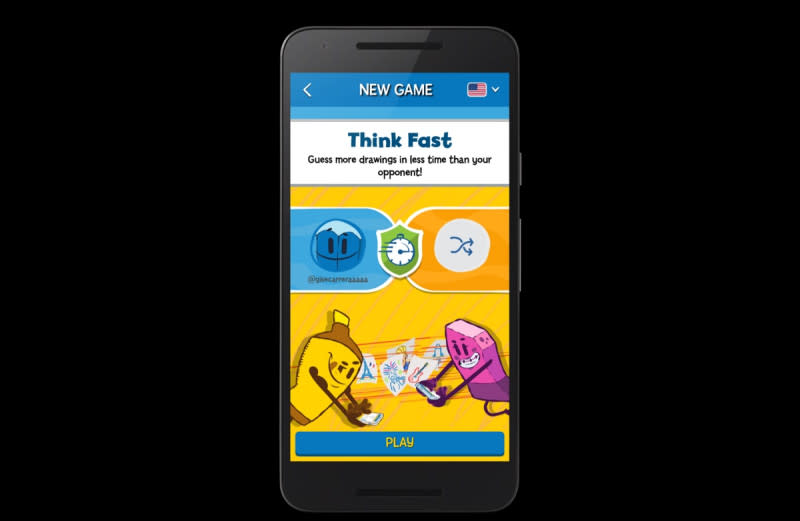
Above: Etermax created Pictionary on smartphones.
Image Credit: Etermax
GamesBeat: Was there a point where you realize how big it could become? Did you test it out in any particular country first?
Cavazzani: With Trivia Crack we didn’t have the question factory at the start. The game wasn’t very popular at that point. But when we created the question factory we started moving up to number one in all of Latin America. That’s when I realized—the impact was huge. That was beginning in March of 2014. I realized we were very close to having something big worldwide.
We first had that feature in Latin America, not the rest of the world, and we found that some small things were wrong. Questions about length were in meters instead of inches. A lot of the sports questions were about soccer. We kept working on the question factory for almost half a year, and by the end of 2014, the app started growing very aggressively in the United States. We hit number one in the App Store in December and stayed there until the beginning of the next March. October 2014 was about when I realized that we were going to have something very huge.
GamesBeat: Has Buenos Aires, and Argentina in general, turned out to be a good place to start a mobile game company? Are there many other companies there?
Cavazzani: We’re the only big one here. Of course you have some challenges here. Some key positions are difficult to fill. But at the same time, we’re doing something from a place where it’s never been done before. It’s easier to motivate people, to give them the idea that they can do important stuff that’s going to be appreciated in the United States or Europe from Argentina. That allows us to get the best people here in Argentina, which has a very strong education system. We have a lot of engineers to recruit.
Also, this is where a lot of the unicorns in Latin America are located. Argentina is much smaller than Brazil, but we have five of the 10 most important unicorns in Latin America. The number one, Mercado Libre, is Argentinian. The technology business is very strong here in Argentina. Of course there are a lot of challenges when it comes to finding people with certain kinds of experience in the industry. We have learned a lot of things ourselves. We have to look at what’s being done at other companies and with time, we’ve become very good at it. It was a challenge when we started, but right now we’re in a good position.
GamesBeat: As far as your other games go, do you think Trivia Crack established a brand or style of game that you want to do in the future?
Cavazzani: More or less? We believe in both paths. We want to expand the Trivia Crack universe. One of the games we’re doing right now is an extension of that universe. But we also want to try doing other kinds of games, more mid-core games or games that have more depth in what they offer. We feel that what’s important in Trivia Crack is the content. We have literally millions of questions in 30 different languages. If we create games using that content they have something to start with. But we don’t want to be a company that only does one kind of game. We want to explore new possibilities in different genres.
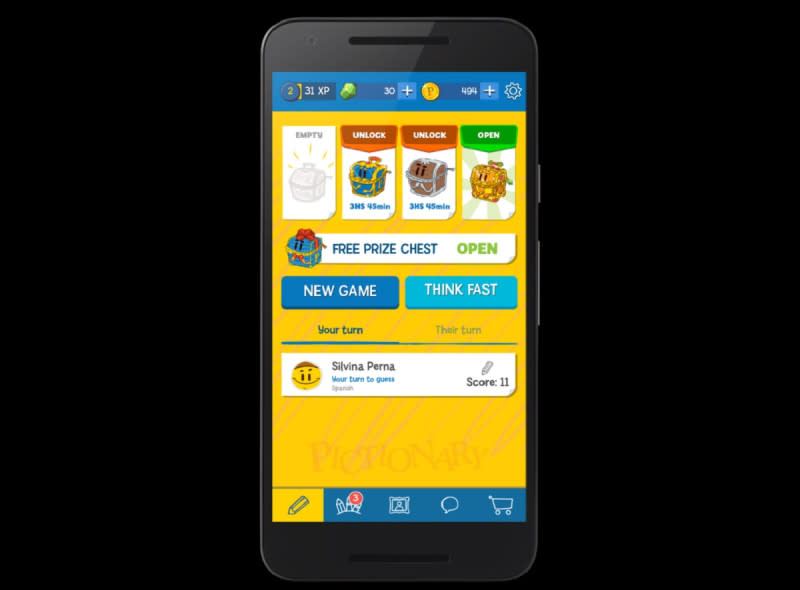
Above: Etermax specializes in cartoon-style games.
Image Credit: Etermax
GamesBeat: As far as your competition in the mobile game industry, what do you think of that? It seems to have consolidated quite a bit. We have a group of pretty large companies in the top rankings now.
Cavazzani: True. Personally I think it was meant to happen. Any industry follows that same pattern. When you start there are lots of players and then efficiency consolidates them. Companies like Supercell or Machine Zone, or even Zynga right now, they’re the ones that have reached this point in the industry. It’s a good thing. We don’t just have one or two big players dominating the whole industry, but we also don’t have hundreds of companies all trying to do the same thing and nobody rising above.
I think we have a good number now as far as balancing competition versus specialization. Some companies are specializing, like King specializing in match-three and bubbles and those kinds of games. We’re more specialized in social, games that work like social networks. Supercell is more into the mid-core segment. Machine Zone is building social games for an adult audience.
I believe that in the next few years, companies will become much more efficient. Some new players will appear, like we saw with Pokemon Go. New content and new technologies will come on the scene and change the rules for some of it. It’s a pretty exciting point in history for gaming.
GamesBeat: Does it seem like it’s going to be possible to get everyone on the planet playing games?
Cavazzani: Probably. We still need to get electricity all around the planet. But as devices become cheaper and the internet becomes more widely available around the world, we don’t really need anything else physical. As long as the internet keeps growing and reaching more people, gaming will follow behind that. So yes, we still have a lot of growth to do. Gaming is always the first industry to take advantage of new technologies and bring that to a broad range of users. We can take chances on new technologies like AR, VR, and more complex implementations of artificial intelligence to bring in more users. If it fails, it fails. It’s still just gaming.
That’s very exciting, because the industry is dictating a lot of new developments in technology, or even business models. The freemium business model was popularized by the game industry. Other software industries around the world are going to follow suit to monetize their applications. It’s important for the proliferation of game companies and the shared purpose of reaching more people around the world.
GamesBeat: How much more life do you see in Trivia Crack? What do you think you can do at this stage to keep boosting it?
Cavazzani: We have a lot of new stuff we want to release, like missions, special editions for the holidays or Halloween, all this new content we can distribute. We have a lot of new social features for the game, like communicating with other players and setting up competitions. But the most important thing is getting better content for the users.
In Trivia Crack the most important thing is just answering questions. We want those questions to be relevant for every user. We achieve that basically by getting more content in from users, filtering it better, and trying to understand each user in order to give them the right content. It’s the same concept as always, but doing it better. Just like Facebook – the things you look at on Facebook are content generated by other users. It’s a matter of improving the tools that make that happen. We’re trying to do that with Trivia Crack as well.
One of our games, Trivia Crack Kingdoms, extends the universe to different areas of knowledge. Right now we have channels about anything you could imagine, from ballet to technology. You can answer questions just about that. We plan to get those experiences into new games so that people who want to play with just a certain kind of questions can do that. Or if they don’t know what to choose, we’ll try to understand the user and give them better questions, better content each time so they can have a better experience with the game.


